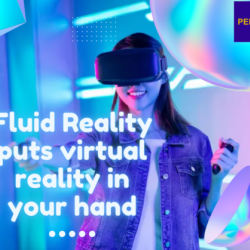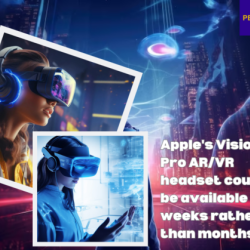The real estate industry is changing quickly, and technological improvements are a major factor. Flat floor designs and static graphics are no longer common in the sector. Virtual reality offers buyers, tenants, and real estate agents a dynamic, immersive, and engaging experience. With the use of technology, potential tenants and buyers can virtually move into a property from the comfort of their own homes. Let’s explore the dramatic effects of virtual reality on property tours and real estate marketing.
Property tours:
We no longer need to set up appointments, make many trips, or deal with time restraints to look at properties. It gives purchasers a quicker, more convenient way to comfortably research different residences. Using a VR headset or a smartphone, users can “walk through” homes, examine every crevice, and get a true feeling of space, size, and layout.
Visualization and decision-making:
Traditional static images and 2D floor designs are substantially inferior to VR. Through immersive 3D experiences provided by virtual reality, potential purchasers may now imagine the home in ways that were previously not conceivable. Users can customize a residence to their interests by moving furniture around, changing the paint and floor types, and adding decorations. This promotes a stronger emotional bond between potential tenants or buyers and the rental and aids in decision-making.
Extensive market reach:
Because VR can access a global audience, it has become essential to real estate marketing. possible buyers can access property listings from anywhere in the world, eliminating geographic restrictions and enlarging the pool of possible buyers. The real estate market becomes more accessible and competitive as a result of the democratization of access, which also opens opportunities for foreign investors and individuals wishing to relocate.
Real estate brokers can set up social media profiles on platforms like Facebook, Instagram, or X and upload stunning VR films showcasing the qualities and amenities of a house. The movies serve as a rough guide for prospective tenants and buyers of real estate. This increases the attention of prospective buyers, who then want to see more of the property.
Engaging and memorable:
Virtual reality property tours are not only educational but also entertaining and unforgettable. Virtual time is easier for prospective tenants or buyers to recall than a static image or conventional walkthrough. Additionally, a VR tour enables a buyer to interact with the property by making modifications to it in an effort to construct their ideal house.
Eco-friendly:
In contrast to typical property visits, virtual tours don’t require any travel. In typical property tours, brokers and potential tenants must go by automobile, increasing greenhouse gas emissions and harming the environment. Virtual reality tours minimize the need for actual travel, lowering the carbon footprint of property searching. This fits with the expanding trend of customers and companies who care about the environment.
Competitive edge:
The housing market is evolving and become more cutthroat. To acquire a competitive edge, professionals must use VR technology if they want to stay relevant. With its cutting-edge, creative approach to real estate marketing, virtual reality draws in savvy customers who value the convenience and adaptability of VR tours.
Time and cost-effective:
Finding a safe neighborhood with houses within your price range, as well as residences with features and facilities, public transportation close, and retail and recreation centers, takes time, money, and worry when done through traditional methods. It costs a lot of money to travel in order to discover the ideal place to live.
No travel is necessary for agents, tenants, or buyers to view or inspect the property. Site visits are now more economical and accessible thanks to virtual reality, which has reduced these costs and simplified the process. You can view the home of your choice in virtual reality while lounging on your couch.
Adapting with time:
The COVID-19 pandemic influenced the use of VR in the real estate industry. Social barriers prevented in-person interactions, making property visits difficult. The sector needed to change quickly. Virtual reality (VR) technology emerged as a secure and effective substitute, ensuring business continuity and success in trying circumstances.
Transparency and trust:
Sellers and agents occasionally overstate certain features of a property. However, virtual reality improves openness in real estate deals. Through VR, customers can perform a complete inspection of a property, lowering the possibility of unpleasant surprises after the sale. You can discover rusting appliances, broken pipes, or fissures that could be very expensive to correct. This openness fosters confidence between buyers, sellers, and brokers, which is essential in a sector where successful transactions heavily rely on trust.
Personalization:
Where do you want to begin looking at houses? Individual tastes can be catered for in VR experiences. The tour can be tailored by buyers or tenants to emphasize more of the features of the house that are important to them, such as the kitchen, bedrooms, or outside areas.
Minimal decision anxiety:
Kenya’s real estate industry offers a variety of homes for purchase or rental. Choosing only one house to buy is challenging. You are unsure of which property to choose.
However, with VR, you may return to a location as many as you wish to double-check. To find a defect in each property, picture your life in that home and arrange all of your possessions according to your preferences. By practicing, you become more knowledgeable and are less likely to regret your purchase or tenancy.
The real estate sector has undergone a huge upheaval because to virtual reality. For buyers and sellers, property visits are more convenient, economical, effective, and entertaining. There will be more cutting-edge VR real estate uses as technology develops. Real estate marketing is already moving toward a virtual future. Accept the shift and enter the fascinating world of real estate through a virtual reality headset.

















